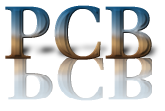 |
pcb 4.1.1
An interactive printed circuit board layout editor.
|
 |
pcb 4.1.1
An interactive printed circuit board layout editor.
|
00001 00029 #ifdef HAVE_CONFIG_H 00030 #include "config.h" 00031 #endif 00032 00033 #include <stdio.h> 00034 #include <ctype.h> 00035 #ifdef HAVE_STDLIB_H 00036 #include <stdlib.h> 00037 #endif 00038 #ifdef HAVE_STRING_H 00039 #include <string.h> 00040 #endif 00041 00042 #if !HAVE_STRCASESTR 00043 /* 00044 * strcasestr() is non-standard so provide a replacement 00045 * when missing 00046 */ 00047 char * strcasestr(const char *big, const char *little) 00048 { 00049 char *b, *l, *p; 00050 00051 b = strdup(big); 00052 if(b == NULL ) { 00053 return NULL; 00054 } 00055 00056 l = strdup(little); 00057 if(l == NULL ) { 00058 free(b); 00059 return NULL; 00060 } 00061 00062 00063 p = b; 00064 while(*p != '\0') { 00065 if (islower(*p)) { 00066 *p = (char) toupper( (int) *p); 00067 } 00068 p++; 00069 } 00070 00071 p = l; 00072 while(*p != '\0') { 00073 if (islower(*p)) { 00074 *p = (char) toupper( (int) *p); 00075 } 00076 p++; 00077 } 00078 00079 00080 /* cheat and do this the easy. Convert to upper case, 00081 * use strstr, and then figure out an offset in *big 00082 */ 00083 p = strstr(b, l); 00084 if (p == NULL) { 00085 free(b); 00086 free(l); 00087 return NULL; 00088 } 00089 00090 p = (char *) big + (p - b); 00091 free(b); 00092 free(l); 00093 return p; 00094 } 00095 #endif